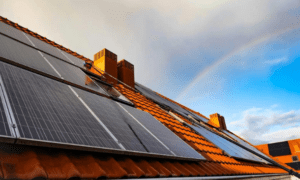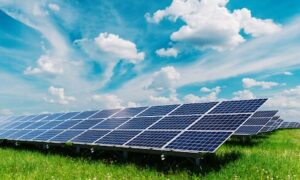Introduction
In today’s environmentally conscious world, solar panels play a pivotal role in generating sustainable energy. But one critical question often arises: how long do solar panels last? This article delves deep into the lifespan of solar panels, factors influencing their durability, and how to ensure you get the most out of your investment.
Understanding Solar Panel Lifespan
Solar panels are renowned for their longevity and are a testament to the advances in green technology. Typically, solar panels are expected to last between 25 and 30 years. However, this number can vary significantly based on several factors, including the type of solar panel, the quality of the installation, and environmental conditions.
Types of Solar Panels and Their Durabilities
Solar panels come in various forms, each with unique characteristics and lifespans:
- Monocrystalline Solar Panels: Made from a single crystal structure, these panels are highly efficient and have the longest lifespan, often exceeding 30 years.
- Polycrystalline Solar Panels: These panels are made from fragments of silicon crystals and are slightly less efficient than monocrystalline panels but still typically last 25 years.
- Thin-Film Solar Panels: Characterized by their thin layer of photovoltaic material placed on a substrate, these panels have the shortest lifespan, averaging about 20 years.
Factors Affecting Solar Panel Longevity
Several factors can influence how long your solar panels will effectively generate electricity:
- Quality of Materials: The durability of the materials used in solar panels significantly impacts their lifespan. Higher quality materials resist degradation from UV exposure and harsh weather conditions more effectively.
- Installation: Proper installation is crucial. Panels must be installed in a manner that minimizes exposure to moisture and mechanical damage.
- Climate: Environmental conditions play a significant role. Panels in areas with extreme weather—such as hail or heavy snow—might experience shortened lifespans due to physical damage.
- Maintenance: Regular maintenance can significantly extend the life of solar panels. This includes periodic cleaning and checks for damage or obstructions.
Maximizing the Life of Your Solar Panels
To ensure your solar panels last as long as possible, consider the following practices:
- Regular Cleaning: Keeping panels clean from dust, dirt, and other debris can prevent a decrease in efficiency.
- Routine Inspections: Regular checks by a professional can identify and mitigate potential issues before they lead to significant damage.
- Adequate Ventilation: Properly ventilating solar panels helps reduce heat buildup, which can degrade the photovoltaic cells over time.
Economic and Environmental Impact of Long-Lasting Solar Panels
The longer your solar panels last, the more value they provide. With a lifespan of over 25 years, solar panels can offer substantial economic benefits, including:
- Reduced Electricity Bills: Solar panels significantly decrease or even eliminate your electricity costs.
- Increased Property Value: Homes with solar panel installations often see increased market values.
- Tax Incentives and Rebates: Many governments offer incentives to encourage solar panel installations, which can offset the initial investment costs.
From an environmental standpoint, longer-lasting solar panels mean:
- Less Waste: Longer lifespans result in fewer units being disposed of and hence less waste.
- Reduced Carbon Footprint: Solar panels contribute to a substantial reduction in greenhouse gas emissions by decreasing reliance on fossil-fuel-based power generation.
Conclusion
Solar panels are a robust, long-lasting investment that can provide significant environmental and economic benefits. By choosing the right type of panel, ensuring professional installation, and maintaining the system appropriately, you can maximize both the lifespan and efficiency of your solar energy system.

































